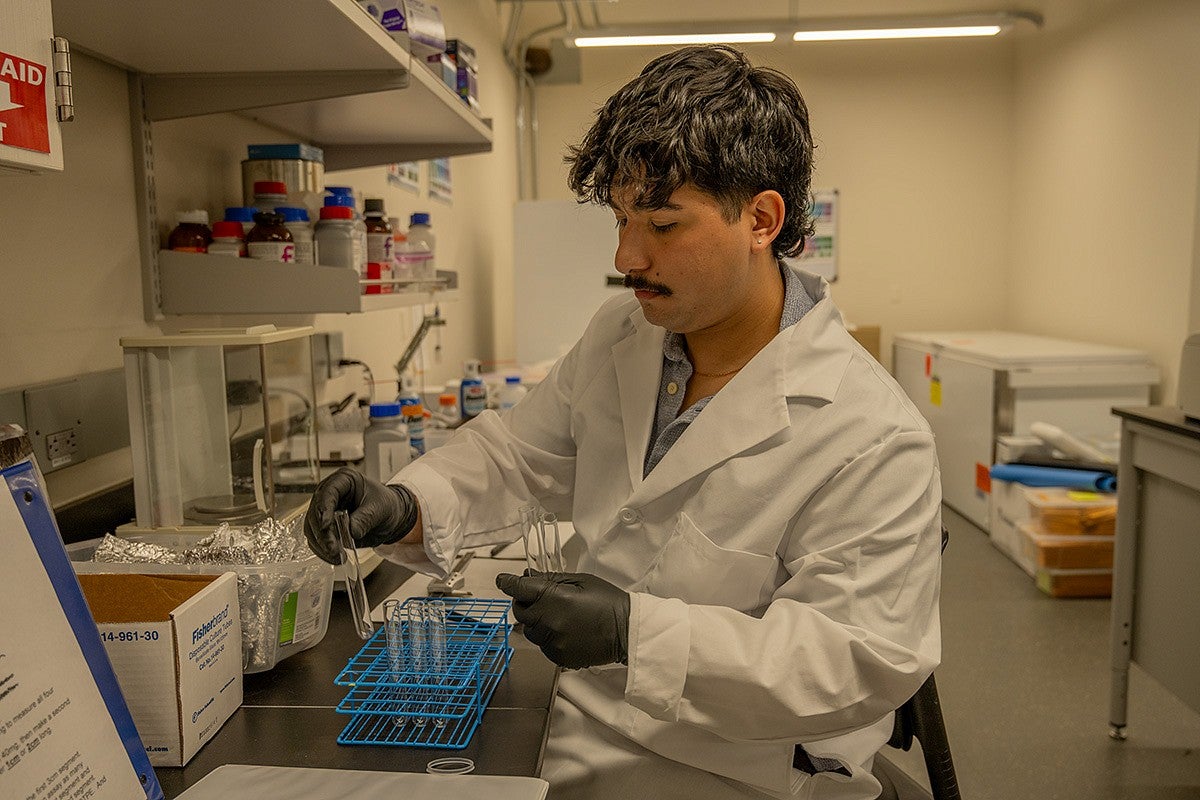
Caring for kids and culture through medicine
Sebastián Ibáñez Sanhueza has been working at the Volunteers in Medicine Clinic in Springfield since his sophomore year at the Clark Honors College.
He spent Tuesday evenings at the clinic to accommodate patients who could only receive care after they got off work. It’s the only completely free medical clinic in Lane County, serving primarily low-income or uninsured patients.
One day, while Ibáñez Sanhueza was translating for a cardiologist, a patient came in for an appointment after he had fainted at work. The man learned that he’d had a heart attack, and he was able to receive timely care thanks to Ibáñez Sanhueza’s Spanish translation support at the clinic.
“Some of these patients wouldn’t be able to go to the doctor if they didn’t have a Spanish interpreter,” says Ibáñez Sanhueza, noting that the man who had a heart attack had spent long hours in the heat and had consumed several sugary energy drinks.
“He didn’t know that what happened was bad,” Ibáñez Sanhueza says, “And he didn’t know that by changing some habits, he could make such an impact on his life.”
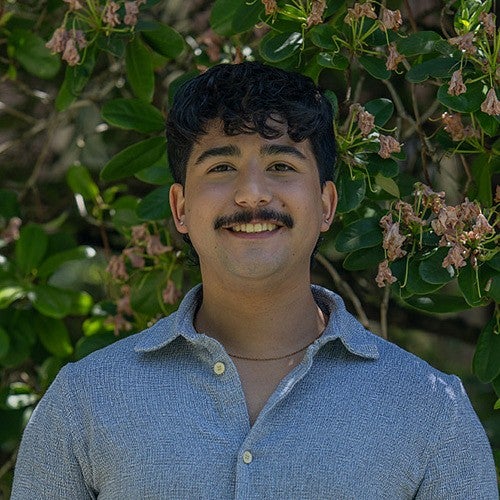
Sebastián Ibáñez Sanhueza
Major: Biology
Minor: Chemistry
Hometown: Talcahuano, Chile
Coffee or tea? Both! There’s a big tea culture in Chile, and I was obsessed with it during high school. Here, I slowly transitioned to coffee, and now I love it.
Song on repeat? “Henry, come on" by Lana Del Rey
Favorite experience from the CHC? Latinx/e Testimonios with Catalina de Onís. That’s one of the classes that shaped me and what I want to do.
This summer, I can’t wait for: Working as a clinical assistant at Eugene Pediatric Associates while applying for medical school.
Thesis title: “Cortisol: A Potential Long Covid Biomarker in Youth”
I’m grateful for: Mentorship, and the opportunities I had while at the CHC.
He views his work in medicine not just as patient interactions, but also as helping people make informed decisions to support their health and well-being. “If you don’t change the root of the problem, it’s just going to keep happening,” he says. “I love when patients explain culturally relevant things in Spanish, and they know that I understand what they’re talking about. This is actually what I want to do when I graduate.”
This summer, he’ll work as a clinical assistant and medical scribe at Eugene Pediatric Associates, taking notes for physicians and practitioners during their appointments. “Every healthcare provider has different requirements and different preferences,” he says. “Navigating that is going to be interesting, but I’m excited because that’s actually something I want to do.”
He says that being on the pre-med track at college has been challenging at times because it’s not always centered around patient care. “In sciences, wearing the lab coat in the basement, I miss the people,” he says. “You never know what patient you’ll get. You don’t know their life story, and it’s fun getting to learn from them, as well.”
When it came time to see patients, Ibáñez Sanhueza says it felt right. “Every single time I was in the room, it was like ‘this is exactly what I want to do,’” he says.
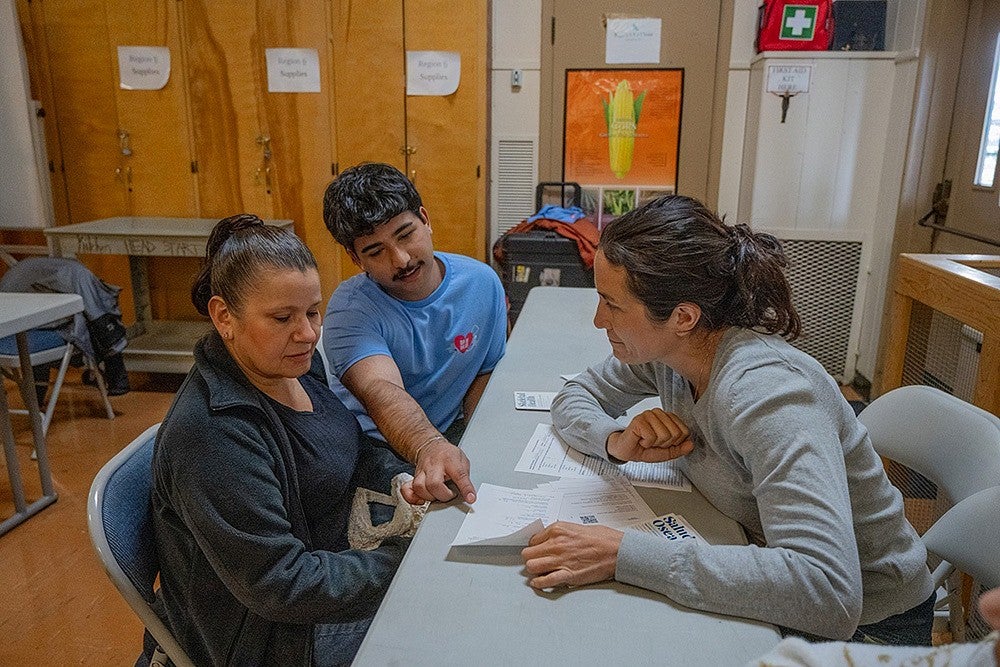
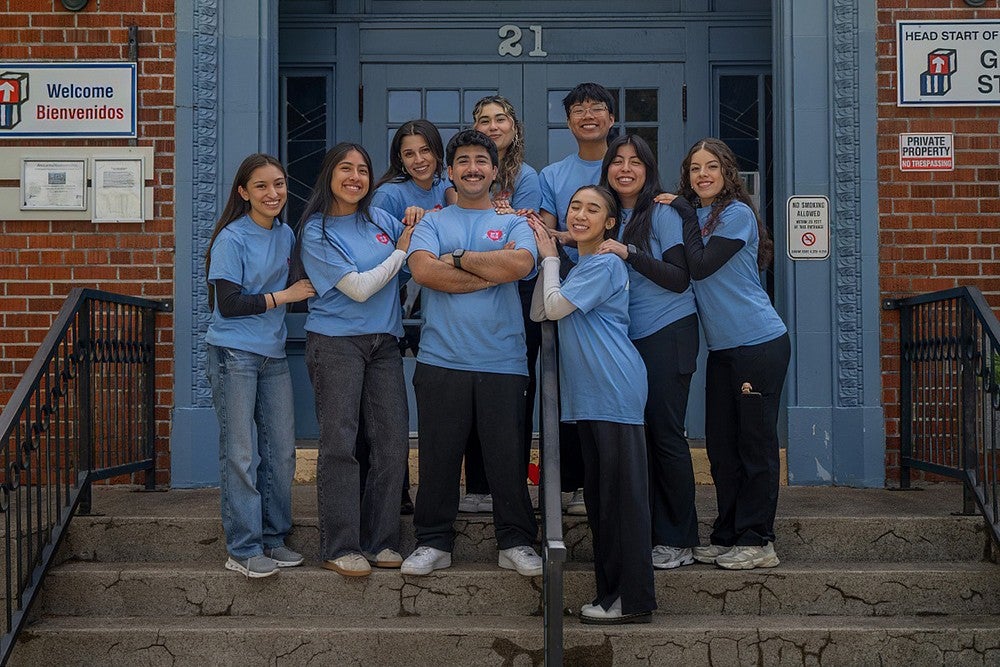
Growing up, Ibáñez Sanhueza was often sick. “Never anything terrible,” he says, but issues like bronchitis and laryngitis recurred for him, sometimes resulting in trips to the hospital. Within that frame, he developed a positive relationship with medical facilities early on. “I remember lying that I felt sick just to go see my pediatrician because I loved her,” he recalls.
The concept of medicine was fun and fascinating to him as a child. The idea that you could take something and you’d feel better afterwards was “kind of crazy back then,” he remembers.
He saw a different side of the story when his mom fell ill when he was about 5 years old. “Medicine was not working for my mom, and that was hard to see,” he recalls. His mom became more stable over time but never returned to 100 percent.
When an uncle struggled with alcoholism while Ibáñez Sanhueza was in high school, it left him feeling frustrated. It seemed that his uncle wasn’t grateful for his health when he had it. Toward the end of his uncle’s life, he made peace with the idea that he couldn’t keep blaming the man. “Sometimes, there’s nothing you can do but help them in their last days to be happy, to feel OK,” he says now.
Seeing how the system he was so fond of didn’t work for everyone lit a fire within him. Maybe if his family had grown up in a different financial situation, he thought, they’d have the means to help his uncle in a different way than just saying goodbye. “I felt betrayed — frustrated that the system had failed me,” Ibáñez Sanhueza says.
The experience drove him. Ibáñez Sanhueza still remembers filling out his application to the Honors College. He was focused on the kind of impact that he wanted to have during his time at the CHC, whether it be interpersonal or on a larger scale.
Seeking experiences that would allow him to leave an impact led him to take “Environmental Justice” and “Latine Testimonios,” courses taught by former CHC instructor Catalina de Onís. “Those classes looked into how the system doesn’t work for everybody,” Ibáñez Sanhueza says. “Some groups are more affected than others, and I looked mainly to health components.”
He studied how people living at lower income levels often have negative factors impacting their health. They live closer to factories, which exposes them to more noise and air pollution than other residents. He analyzed how certain individuals may not seek the medical care they need due to the distance from a hospital or financial stressors that force them to prioritize work over health. “It adds up to create this difficult system that doesn’t work for everybody,” he says.
As an international student from Talcahuano, Chile, classes in the Honors College exposed him to the inner workings of the U.S. healthcare system and all its shortcomings. He began to reflect on how it could be changed to better support disadvantaged groups.
A multidisciplinary project that he published during the Latine Testimonios class, “Medical Interpretation and the Art of Storytelling,” emphasized the need for Spanish-language translation in the medical field, not just as language translation, but as cultural bridge-building in healthcare settings. The project won him a Center for Latino/a/x and Latin American Studies Outstanding Undergraduate Award in 2024.
De Onís has nothing but praise for her former student. “He is a remarkable scholar, who I am honored to have learned with and from,” de Onís says. “And he will one day be an outstanding doctor.”
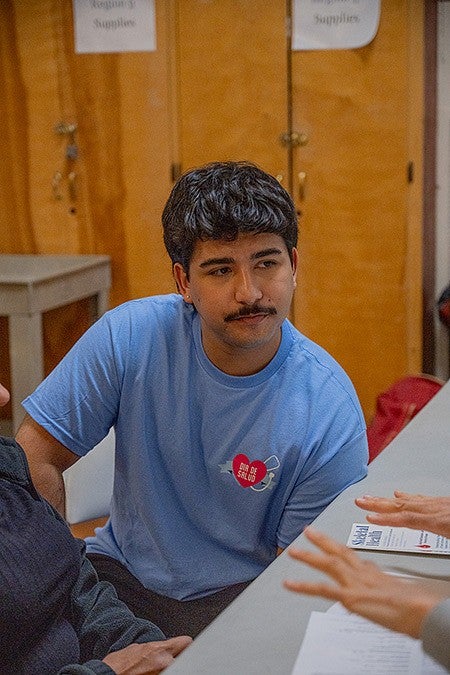
In and out of class, Ibáñez Sanhueza’s work is grounded in finding novel solutions to medical problems for those who need it most. He was one of the first undergraduates hired to work with the Stress Physiology Investigative Team lab. There, he learned to use biochemistry and psychology to examine how stress can have physiological impacts on patients, and how to identify potential risk factors.
His Honors College thesis, “Cortisol: A Potential Long Covid Biomarker in Youth,” was a culmination of his time in the lab and his work as a Hui Undergraduate Research Scholar. By using hair samples as a non-invasive biomarker from patients, he tested levels of the stress hormone cortisol and compared its effects in youth to those in adult populations. Cortisol, as a biomarker, can predict long COVID symptoms in adults, but Ibáñez Sanhueza wondered what it means for youth.
“His research really has the potential to change the way that doctors think about long COVID and its risk factors,” says Birdie Shirtcliff, the research professor leading the lab.
“What Sebastián found is that when we look at this population of youth who weren’t really paid attention to during the pandemic, because they were considered low-risk, if you look closer, a lot of youth were the ones most likely to have strange cardiovascular symptoms” or other COVID-related issues.
Ibáñez Sanhueza looks forward to working directly with patients at Eugene Pediatrics. He will return to Volunteers in Medicine this summer with a more flexible schedule.
He says he knows graduate school is on the horizon for him. Still, whether he pursues a medical degree or gets a doctorate isn’t being decided just yet. He is certain that he wants to continue working with youth.
“I was always just hopeful that something was going to change,” he says. “There’s a kind of magic when you’re working with kids. Even when they’re so affected by something, they have a smile on their face— they have hope.”

